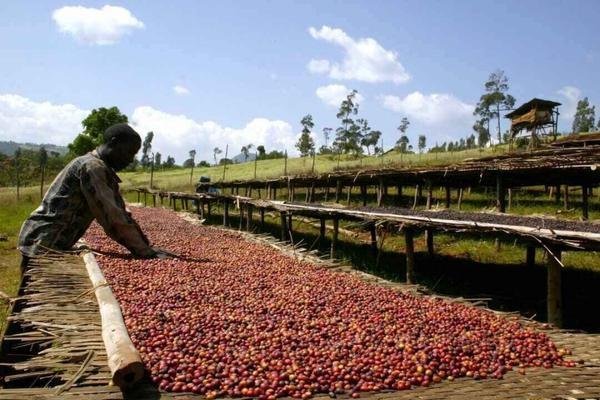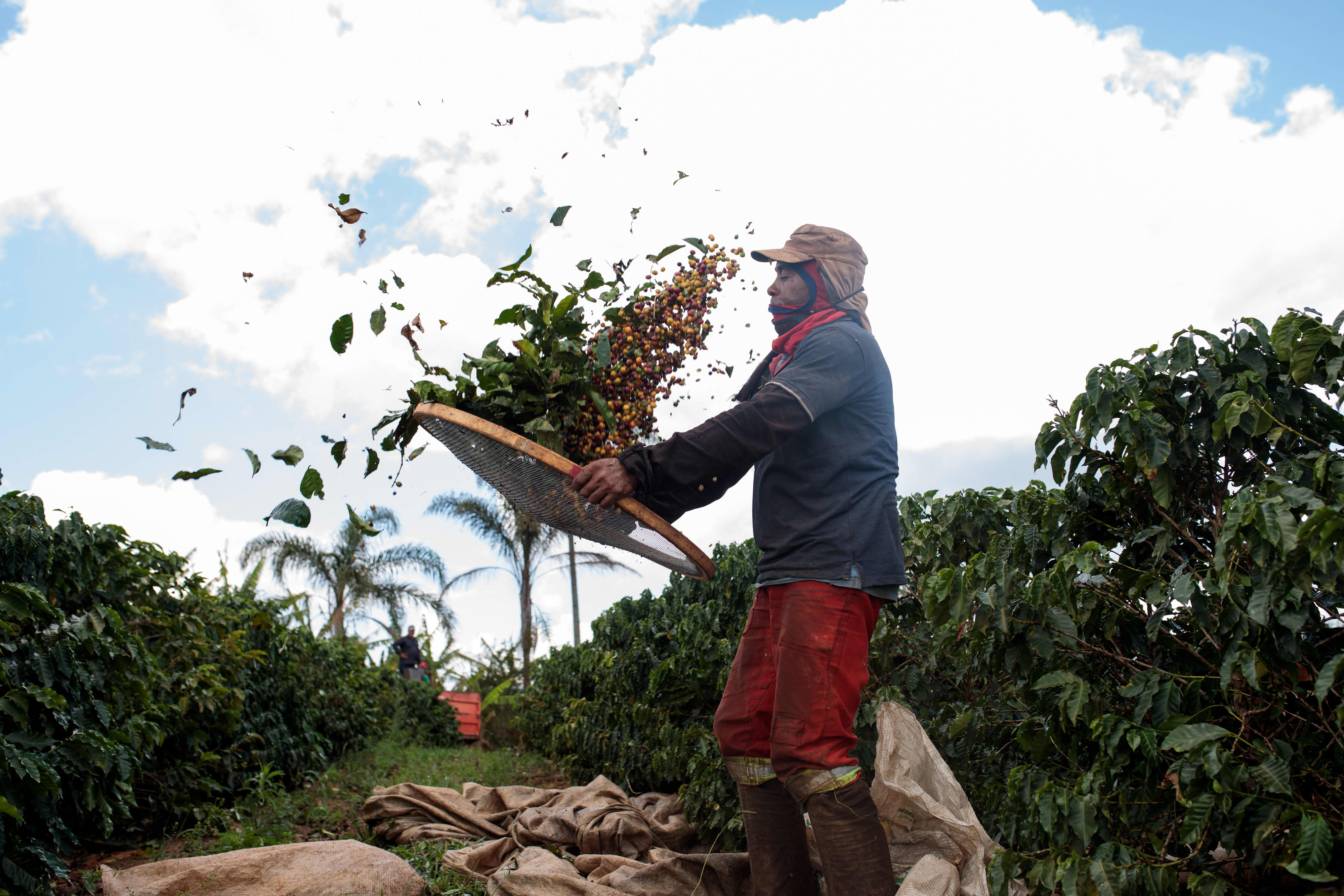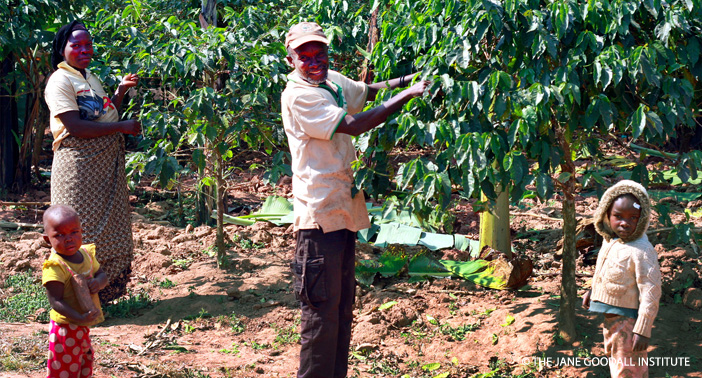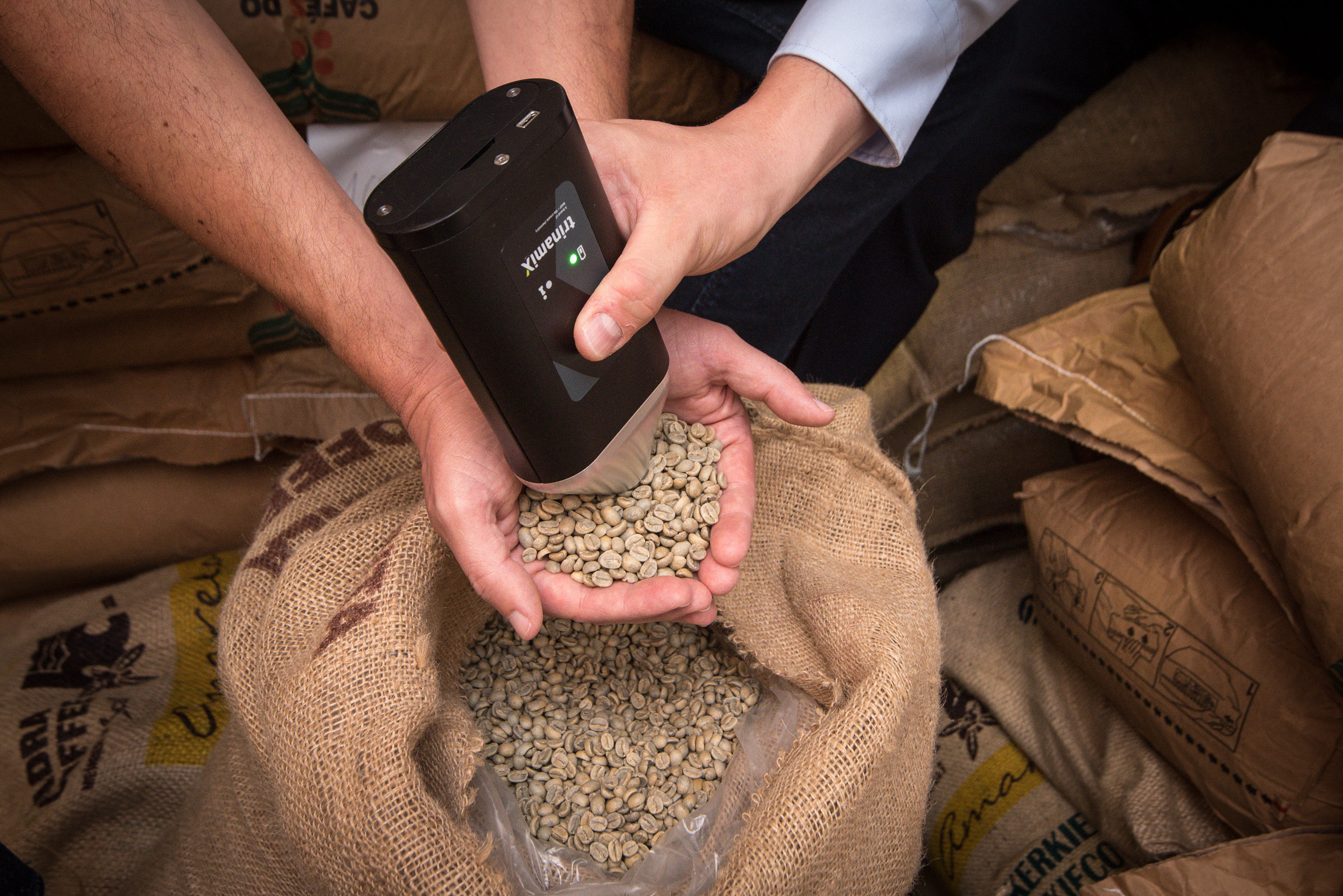Definition of Specialty Coffee
Specialty coffee is a term used to describe high-quality coffee that is distinct in terms of flavor, aroma, and overall sensory experience. It represents a revolution in the coffee industry, as it focuses on producing exceptional coffee from farm to cup while considering various aspects, including environmental impact and sustainable practices. Unlike conventional coffee, specialty coffee is produced by coffee farmers who employ precise cultivation methods, ensuring meticulous harvesting, processing, and roasting techniques. This attention to detail results in a beverage that showcases the unique characteristics of the coffee beans, offering coffee lovers an elevated and memorable coffee drinking experience. In Canada, several brands have emerged as leaders in the specialty coffee market, promoting sustainability and supporting coffee growers worldwide. These brands prioritize direct relationships with coffee producers, fair-trade practices, and environmentally conscious sourcing decisions, all of which contribute to the positive impact of the specialty coffee industry.
Definition of Specialty Coffee
Specialty coffee has witnessed a sustainability revolution as it travels from farm to cup. With a focus on high-quality coffee, this revolution has brought about changes in the coffee industry that consider the environmental impact, fair trade practices, and the well-being of coffee producers. Unlike conventional coffee, specialty coffee is grown under specific conditions that enhance its flavor and unique characteristics. In countries like Canada, specialty coffee has gained popularity among coffee lovers who appreciate its exceptional taste and ethical sourcing. Numerous brands in Canada have embraced the specialty coffee movement, offering consumers a wide range of options to indulge in an amazing cup of sustainably and ethically produced coffee. These brands not only bring exceptional quality to coffee drinkers but also strive to have a positive impact on the coffee supply chain, ensuring that coffee farmers receive fair wages, reducing carbon footprints, and preserving the environment for future generations. The rise of specialty coffee in Canada showcases the growing consumer awareness and demand for high-quality coffee with a compelling story that goes beyond the coffee itself.
Overview of the Sustainability Revolution
The specialty coffee industry in Canada is undergoing a sustainability revolution, placing a strong emphasis on environmentally friendly practices and social and economic sustainability. This revolution is driven by a growing awareness of the environmental impact of coffee production and a desire to preserve and protect the communities and ecosystems involved in the coffee supply chain.
Coffee production has traditionally had a significant environmental footprint, with intensive farming practices resulting in deforestation, water pollution, and greenhouse gas emissions. However, specialty coffee producers in Canada have been proactive in developing sustainable production methods to minimize these impacts.

Farmers play a central role in promoting sustainability within the specialty coffee industry. They are adopting organic farming practices, such as using compost and natural fertilizers, to reduce chemical inputs and protect soil health. By implementing shade-grown techniques, producers preserve biodiversity and provide a habitat for migratory birds. Additionally, they are investing in water management systems to ensure responsible water usage.
Social and economic sustainability is also a key focus. Specialty coffee growers prioritize fair-trade practices, ensuring that farmers receive fair wages and stable income. This support enables coffee-producing communities to thrive, improve their living conditions, and invest in their future.
This sustainability revolution in the specialty coffee industry in Canada aligns with the global movement towards more ethical and environmentally conscious consumption. As consumers become more educated about the impact of their choices, they are increasingly seeking out brands that prioritize sustainability. By supporting specialty coffee brands that are committed to environmentally friendly practices and the welfare of coffee-producing communities, Canadians can contribute to positive change and enjoy a great cup of coffee with a clear conscience.
The Origin of Coffee Beans
Coffee is one of the most widely consumed beverages in the world, and its journey from farm to cup begins with the cultivation of coffee beans. Originating in the tropical regions of Africa, coffee beans are grown in countries like Ethiopia, Kenya, and Tanzania. These regions have ideal climate and soil conditions for coffee production, resulting in the development of unique flavors and characteristics. As the popularity of specialty coffee grows, Canadian coffee brands have recognized the importance of sourcing beans from specific origins that produce high-quality coffee. They prioritize direct trade relationships with coffee growers, ensuring that farmers receive fair wages and that environmental and social sustainability are upheld throughout the supply chain. By showcasing the distinct flavors and stories behind each origin, Canadian specialty coffee brands are offering consumers a truly exceptional and sustainable coffee experience.
Different Varieties of Coffee Beans
Found in Brazil
In Brazil, the diversity of coffee bean varieties contributes immensely to the sustainability revolution in the specialty coffee industry. The country boasts a wide range of coffee bean varieties, each with its unique characteristics and flavors, enticing coffee lovers across the globe.
One popular coffee variety from Brazil is the Arabica bean. Renowned for its low acidity and smooth, medium-bodied profile, it offers a delightful balance of flavors with notes of chocolate, nuts, and caramel. Another notable variety is the Catuai bean, which exhibits a more pronounced sweetness and brightness, making it perfect for espresso-based beverages.
The Bourbon variety, highly esteemed for its delicate aroma and complexity, delivers a rich and vibrant taste, featuring fruity and floral notes. The Yellow Bourbon, a mutation of the Bourbon variety, presents a more intense flavor profile, highlighting hints of citrus and tropical fruits.

Furthermore, the Mundo Novo bean, a hybrid of the Bourbon and Typica varieties, produces a full-bodied cup, characterized by its mild acidity, nutty undertones, and subtle hints of chocolate. On the other hand, the Acaia bean, known for its exceptional sweetness and pronounced acidity, captivates coffee enthusiasts with its fruity and floral aromas.
These Brazilian coffee bean varieties offer a diverse range of sensory experiences and flavors, captivating coffee aficionados worldwide. The sustainability revolution in the specialty coffee industry thrives on the unique qualities and characteristics of these beans, ensuring a rewarding and unforgettable coffee journey for all.
Growing and Harvesting Processes
In Canada, the specialty coffee industry is thriving, with a range of brands offering high-quality and sustainable coffee options. To understand the journey from farm to cup, it is essential to explore the processes involved in growing and harvesting coffee.
Coffee farmers in Canada follow meticulous steps to ensure the production of top-grade coffee beans. It all begins with planting the coffee trees in suitable regions with the right combination of altitude, climate, and soil conditions. The trees take several years to mature and start bearing fruits known as cherries.
When the cherries ripen, coffee farmers carefully pick them by hand. This selective picking process ensures that only the fully ripe cherries are harvested, as they offer the best flavors. Picking the cherries at different stages of ripeness can affect the final cup quality.

The environmental impact of coffee growing and harvesting is an important consideration. Sustainable farming practices are increasingly adopted in Canada, aiming to minimize negative consequences. This includes methods such as organic farming, shade-grown cultivation, and water conservation techniques. These practices help protect biodiversity, mitigate soil erosion, and preserve natural habitats.
With a focus on sustainable and ethical practices, Canadian coffee producers are committed to delivering exceptional specialty coffee while also prioritizing the well-being of the environment and local communities. This dedication ensures that coffee lovers can enjoy their cup of coffee with the knowledge that it is responsibly sourced and contributes positively to a sustainable future.
Environmental Impacts of Production
Specialty coffee production in Canada brings numerous benefits to the coffee industry, including higher quality beans and a more sustainable approach. However, it's important to acknowledge the environmental impacts associated with coffee production, particularly in the context of the coffee brewing process.
The carbon emissions generated during the coffee brewing process are a significant concern. It is estimated that the coffee industry produces approximately 50 billion pounds of carbon dioxide annually. This emission contributes to greenhouse gas emissions and exacerbates climate change.

Additionally, coffee production is linked to deforestation, as farmers often clear large areas of land to cultivate coffee trees. This deforestation destroys natural habitats, disrupts ecosystems, and reduces biodiversity. Water pollution is another environmental impact, as coffee production often involves the use of pesticides and fertilizers that can contaminate nearby water sources.
Coffee production can also lead to soil degradation, as unsustainable farming practices, such as excessive use of chemicals and improper waste management, can deplete the fertility of the soil over time.
To mitigate these environmental impacts, the concept of sustainability plays a crucial role. Adopting environmentally friendly practices throughout the entire coffee supply chain, from farm to cup, is key. This includes implementing organic farming methods, using renewable energy sources, promoting water conservation, and employing responsible waste management practices.
By embracing sustainability, the specialty coffee industry in Canada can minimize its carbon footprint, protect natural habitats, support biodiversity, and preserve the quality of our planet for future generations.
Sustainable Production Practices
Specialty coffee in Canada is known for its commitment to sustainable production practices, which prioritize minimizing the environmental impacts of coffee production while ensuring high-quality beans. The specialty coffee industry understands the importance of adopting environmentally friendly practices throughout the entire supply chain, from farm to cup.
One of the key aspects of sustainable coffee production is the careful consideration of environmental impacts. Coffee farmers are increasingly adopting organic farming methods, avoiding the use of synthetic pesticides and fertilizers that can harm the environment. This helps to minimize water pollution and preserve the natural balance of ecosystems surrounding coffee farms.

Furthermore, specialty coffee producers focus on promoting biodiversity and environmental preservation. They often implement shade-grown coffee techniques, which involve cultivating coffee plants under the shade of trees. This not only protects the coffee plants from extreme weather conditions but also provides habitats for birds and other wildlife, enhancing overall ecosystem health.
Fair trade and supporting small-scale producers play a significant role in sustainable coffee production. By ensuring that coffee farmers receive fair prices for their beans, consumers and industry players help improve the livelihoods of farmers and encourage them to continue practicing sustainable farming methods. Supporting small-scale producers also contributes to the preservation of traditional farming practices and cultural heritage.
Coffee buyers and roasters also play a crucial role in creating a sustainable supply chain. They establish direct relationships with coffee growers, enabling them to monitor and vet the sustainability practices employed on the farms. By consciously sourcing beans from environmentally responsible farms and paying fair prices, coffee buyers and roasters encourage sustainable practices throughout the industry.
In summary, sustainable production practices in the specialty coffee industry in Canada prioritize minimizing environmental impacts, supporting fair trade, and promoting small-scale producers. By adopting organic farming methods, cultivating shade-grown coffee, and establishing direct relationships with growers, the industry aims to create a sustainable supply chain that ensures the long-term viability of quality coffee while preserving the environment.
The Role of Farmers
The Role of Farmers in the Sustainability Revolution of Specialty Coffee
Coffee farmers are at the forefront of the sustainability revolution in specialty coffee. As the stewards of coffee plantations, they have a crucial role in implementing sustainable practices from farm to cup. These farmers are increasingly adopting organic farming methods, avoiding synthetic pesticides and fertilizers that harm the environment. By minimizing water pollution and preserving the natural balance of ecosystems surrounding their farms, they contribute to the overall environmental health. Additionally, specialty coffee farmers prioritize biodiversity and environmental preservation through shade-grown coffee techniques, which provide habitats for birds and other wildlife. Supporting fair trade and small-scale producers is also a significant aspect of sustainable coffee production, as it helps improve farmers' livelihoods and encourages them to continue employing sustainable farming methods. Overall, coffee farmers play a fundamental part in creating a sustainable supply chain by cultivating high-quality, environmentally responsible beans.
Challenges Faced by Coffee Farmers
Coffee farmers face various challenges that impact their profitability and the sustainability of the coffee industry. One significant challenge is the struggle to maintain profitability due to fluctuating coffee prices and high production costs. Many farmers rely on low-cost coffee, which often leads to reduced income and financial instability.
Another challenge is the loss of farming knowledge and techniques. As younger generations move away from agriculture, the transfer of traditional farming methods and expertise becomes limited. This loss of knowledge hampers the ability to adapt to changing climates and improve farming practices.
Furthermore, the dependence on low-cost coffee is detrimental to the sustainability of the industry. It often requires farmers to use environmentally harmful methods, such as clearing forests for increased land or using excessive amounts of pesticides and fertilizers. This not only degrades ecosystems but also compromises the long-term viability of coffee production.
The challenges faced by coffee farmers have a direct impact on their livelihoods and the communities they belong to. The lack of profitability and loss of farming knowledge make it difficult for farmers to sustain their businesses and provide for their families. As a result, many are forced to abandon coffee farming, leading to further economic disparities and a decline in specialty coffee production.
To address these challenges, it is crucial to support initiatives that promote fair prices, sustainable farming methods, and knowledge-sharing among coffee farmers. By doing so, we can help create a more equitable and environmentally conscious coffee industry that benefits both farmers and coffee lovers alike.
Supporting Fair Trade & Small-Scale Producers
Supporting fair trade and small-scale producers is of great importance in the specialty coffee industry in Canada. Fair trade practices aim to establish equitable partnerships and ensure that coffee farmers receive fair wages for their hard work. By purchasing fair trade coffee, consumers can contribute to improving the lives of farmers and their families.
One of the primary benefits of fair trade practices is that they help guarantee better working conditions for coffee farmers. Fair trade certification ensures that farmers are not subjected to exploitative labor practices and have access to health and safety standards. This leads to improved livelihoods and a higher quality of life for coffee producers.
In addition to fair wages and working conditions, supporting small-scale producers also plays a crucial role in preserving biodiversity and promoting sustainable farming practices. Many small-scale producers prioritize environmentally friendly cultivation methods, such as organic farming and shade-grown coffee. This helps maintain ecosystem balance, protect wildlife habitats, and prevent soil erosion. Furthermore, small-scale producers often have a deeper connection to their land, emphasizing the preservation of traditional cultivation techniques and local biodiversity.
By supporting fair trade and small-scale producers, coffee lovers not only enjoy high-quality and ethically sourced coffee, but also actively contribute to social and environmental sustainability. Through their choices, consumers have the power to make a positive impact on the lives of coffee farmers and the planet.
Keywords: fair trade coffee, small-scale producers, fair wages, working conditions, biodiversity, sustainable farming.
Creating Sustainable Livelihoods for Farmers
Ensuring sustainable livelihoods for coffee farmers is a crucial aspect of the specialty coffee industry in Canada. Fair prices and profitability are key factors in supporting farming communities and improving the lives of coffee producers.
Coffee farmers face numerous challenges, including fluctuating market prices and the need to adapt to changing climate conditions. These factors can make it difficult for farmers to earn a living wage and sustain their businesses, leading to a loss of generational knowledge and a shift away from coffee cultivation towards more profitable crops.

To address these challenges, green purchasing options have emerged in the specialty coffee industry. These options involve direct trade and fair trade practices, which aim to secure sustainable prices for coffee farmers. By directly working with farmers or ensuring fair trade certification, the specialty coffee brands in Canada can guarantee that farmers receive fair prices for their coffee beans.
By supporting these green purchasing options and choosing specialty coffee brands that prioritize sustainable livelihoods for farmers, consumers in Canada can contribute to positive change. By paying fair prices for their coffee, consumers not only enjoy high-quality and ethically sourced coffee but also help create a more sustainable future for farming communities. Through their choices, Canadians have the power to support the livelihoods of coffee farmers and promote a more equitable and sustainable coffee industry.
Coffee Buyers and Roasters
Coffee Buyers and Roasters in the Specialty Coffee Industry in Canada
The specialty coffee industry in Canada boasts a vibrant and rapidly growing market of coffee lovers who appreciate the craft and quality of their cup of joe. With a focus on high-quality coffee and sustainability, coffee buyers and roasters play a crucial role in ensuring that the supply chain supports both the farmers and the environment. These coffee buyers and roasters have developed direct relationships with coffee farmers around the world, bypassing traditional intermediaries to establish mutually beneficial partnerships. They prioritize ethical sourcing practices and pay fair prices to coffee farmers, thus providing a livelihood and positive impact for millions of coffee farmers. By sourcing green coffee beans from farms that prioritize environmental preservation and pay their workers living wages, Canadian coffee buyers and roasters are setting a new standard for sustainability in the coffee industry. As a result, specialty coffee brands in Canada are gaining a competitive advantage by offering consumers not only amazing coffee but also a compelling story of environmental consciousness and social responsibility.
Connecting with Quality Suppliers & Farmers
Connecting with quality suppliers and farmers is crucial in the specialty coffee industry in Canada. These relationships directly contribute to sustainable and high-quality coffee production. By establishing a direct relationship with farmers, specialty coffee brands can ensure that their coffee is ethically sourced and produced.
Working closely with suppliers who prioritize fair trade and environmental responsibility has several benefits. Firstly, it allows coffee buyers to support farmers and their communities by providing fair wages and living conditions. This ensures that farmers can continue to produce exceptional coffee year after year.

Secondly, sourcing coffee from environmentally responsible suppliers helps reduce the carbon footprint of the coffee chain. With a growing concern for environmental preservation, consumers are increasingly seeking out brands that prioritize sustainability.
Coffee buyers play a crucial role in building partnerships with suppliers and farmers. By visiting farms, understanding their practices, and sharing their stories, buyers can create a connection that goes beyond a simple transaction. This direct relationship fosters trust, encourages collaboration, and ultimately results in the production of amazing coffee.
In conclusion, connecting with quality suppliers and farmers in the specialty coffee industry is essential for sustainable and high-quality coffee production in Canada. By prioritizing fair trade and environmental responsibility, coffee buyers can not only contribute to positive social and environmental impacts but also provide coffee lovers with a compelling story behind each cup of specialty coffee.
Roasting Practices & Their Impact on Taste and Quality
Roasting practices play a crucial role in the specialty coffee industry, as they greatly impact the taste and quality of the final product. Different roasting techniques, such as time, temperature, and airflow, are employed to achieve desired flavor profiles.
Roasting time determines the development of flavors in coffee beans. Longer roasting times produce darker beans with deeper flavors, while shorter roasting times result in lighter beans with more subtle flavors. The temperature at which the beans are roasted also affects the taste. Higher temperatures bring out more acidity and brightness in the coffee, while lower temperatures create a smoother and milder flavor.

Furthermore, airflow during roasting can significantly impact the flavor profile. Proper airflow allows for even heat distribution, ensuring that the beans roast consistently. It also helps in removing moisture from the beans and prevents them from becoming too dark or scorched.
In addition to roasting techniques, the specialty coffee industry is also focusing on eco-friendly packaging. Sustainable development goals are prioritized by many coffee brands, and this includes using packaging materials that have a minimal negative impact on the environment. From biodegradable bags to recyclable or compostable options, eco-friendly packaging aligns with the industry's commitment to sustainability.
In conclusion, the specialty coffee industry emphasizes roasting practices to achieve desired flavor profiles. Time, temperature, and airflow are key factors that influence the taste and quality of the final product. Additionally, the industry's focus on eco-friendly packaging demonstrates its commitment to sustainable development goals. By considering all these factors, specialty coffee brands in Canada are able to deliver exceptional products that cater to the preferences of coffee lovers while prioritizing environmental responsibility.
Quality Assurance & Environmental Responsibility for Retailers and Consumers
In the specialty coffee industry in Canada, quality assurance and environmental responsibility play crucial roles for both retailers and consumers. Quality assurance ensures that consumers receive the best coffee experience while environmental responsibility addresses the sustainability aspect of the industry.
For retailers, quality assurance involves stringent sourcing practices. They focus on partnering with coffee producers who uphold high-quality standards and ethical farming practices. This ensures that only the best and most sustainable beans are selected for roasting. Additionally, certifications such as Fair Trade, Organic, and Rainforest Alliance are sought after by retailers to further affirm their commitment to responsible sourcing.

Environmental responsibility in the specialty coffee industry extends beyond sourcing practices. Retailers also prioritize eco-friendly packaging options to minimize waste and reduce their environmental impact. This includes using compostable or recyclable materials for coffee bags and seeking out sustainable alternatives for brewing equipment.
However, the impact of quality assurance and environmental responsibility in the specialty coffee industry goes beyond retailers. Consumers also play a vital role. By choosing to support sustainable coffee brands, consumers can contribute to the positive impact on the environment and the livelihood of coffee farmers. They can look for certifications on coffee packaging or actively seek out information on the sourcing and sustainability practices of their preferred coffee brands.
In conclusion, for both retailers and consumers in the specialty coffee industry, quality assurance and environmental responsibility go hand in hand. By prioritizing these factors, retailers can ensure the highest quality and sustainability of their products, while consumers can make environmentally responsible choices and support brands that align with their values.



Share:
A Beginner's Guide to Specialty Coffee: What Sets It Apart?
Lamose Hudson vs. Michael's Store Mug: A Comprehensive Comparison